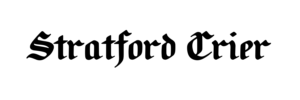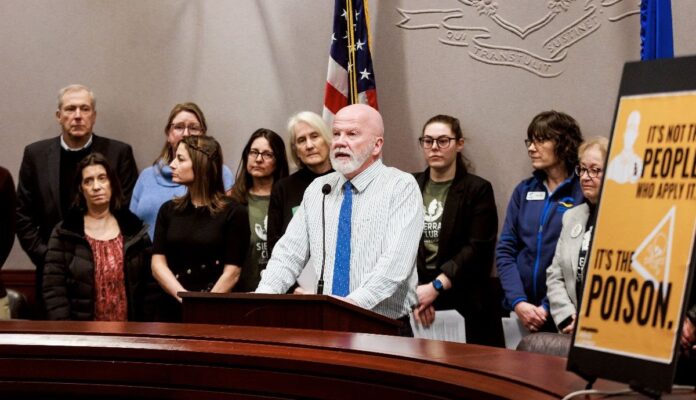State Representative Joe Gresko (D)
121st Connecticut House District
Dear Neighbor,
I was honored to stand with advocates to raise awareness about two important bills aimed at protecting wildlife, residents, and pets from the harmful effects of pesticides and toxic chemicals. These pieces of legislation are designed to reduce the use of dangerous substances that not only target and kill insects and rodents, but also threaten our children, pets, and local ecosystems.
I am proud to co-sponsor House Bill 6915, which seeks to restrict the use of second-generation anticoagulant rodenticides (SGARs). These highly toxic baits kill rodents by preventing blood from clotting but often have unintended targets and consequences. Wildlife, pets, and even children who come into contact with these poisons – or with prey that has ingested them – suffer internal bleeding, long-term effects, or even death.
Just as the population of the state’s raptors is beginning to rebound, SGARs are becoming the DDT of our generation, bioaccumulating in food chains with devastating consequences. Wildlife in Crisis, Connecticut’s largest wildlife rehab center, reports at least 100 birds of prey and 40 foxes die annually in its care from SGAR exposure. Similarly, A Place Called Hope Birds of Prey rehab center in Killingworth has found that 78 animals, including birds, tested positive for SGARs and died. This is a crisis we must address to protect our wildlife and preserve biodiversity.
I am also proud to co-sponsor House Bill 6916, which would restrict the use of neonicotinoids on lawns, golf courses, and some agricultural seeds. Neonicotinoids, commonly knowns as neonics, are a group of chemicals widely used on farms and in gardens to kill insects. The U.S. Geological Survey has found that more than half the rivers in Connecticut contain neonics at levels lethal to key aquatic insects. The loss of these insects, such as bees and other pollinators, has cascading effects, threatening the survival of birds, fish, amphibians, and other wildlife that rely on them for food.
This effort is not about banning these chemicals outright or creating hardship for farmers and pesticide users. My colleagues, advocates, and I are committed to working collaboratively with farmers, pest control professionals, and the broader community to find balanced solutions. The goal is to ensure these chemicals are used only as a last resort, while raising awareness of their environmental impact.
As always, if I can be of any assistance, please feel free to contact my office at (860) 240-8585 or email me directly.
Joseph P. Gresko




Thanks Joe !!!!
I appreciate the hard work you are doing, Joe.